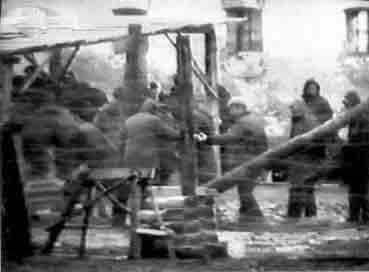On guilty verdict in Bihać crime case

The Higher Court in Belgrade on 4 February 2014 passed a judgment convicting Đuro Tadić of the war crime against civilians committed on 23 September 1992 in the village of Duljci (municipality of Bihać, BiH), and sentenced him to 10 years in prison. The Humanitarian Law Center (HLC) points out that the judgment is based on convincing evidence presented at the trial, and that the accountability of Đuro Tadić was proved beyond reasonable doubt, but that the sentence imposed on him is an insult to the victims.









 The Humanitarian Law Center (HLC) filed a criminal complaint against Božidar Delić, the former Commander of the 549th Motorized Brigade of the Yugoslav Army (549th YA MtBr), Radivoj Paravinja, the Commander of the 3rd Combat Group, and a number of unidentified members of the 549th MtBr, on December 26th, 2013, based on reasonable suspicion that they committed a war crime against the civilian population in the village of Landovica (Municipality of Prizren) on March 26th, 1999.
The Humanitarian Law Center (HLC) filed a criminal complaint against Božidar Delić, the former Commander of the 549th Motorized Brigade of the Yugoslav Army (549th YA MtBr), Radivoj Paravinja, the Commander of the 3rd Combat Group, and a number of unidentified members of the 549th MtBr, on December 26th, 2013, based on reasonable suspicion that they committed a war crime against the civilian population in the village of Landovica (Municipality of Prizren) on March 26th, 1999.
 The Humanitarian Law Center (HLC) demands that the Chief of the General Staff of the Serbian Armed Forces, Ljubiša Diković, suspends Pavle Gavrilović and Rajko Kozlina, persons indicted for the crime in Trnje committed against Kosovo Albanians on March 25th, 1999, from the Serbian Armed Forces, until the completion of the proceedings.
The Humanitarian Law Center (HLC) demands that the Chief of the General Staff of the Serbian Armed Forces, Ljubiša Diković, suspends Pavle Gavrilović and Rajko Kozlina, persons indicted for the crime in Trnje committed against Kosovo Albanians on March 25th, 1999, from the Serbian Armed Forces, until the completion of the proceedings.